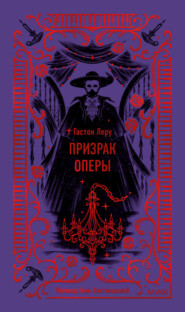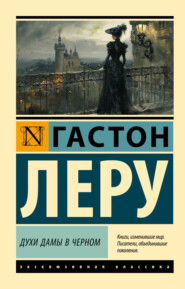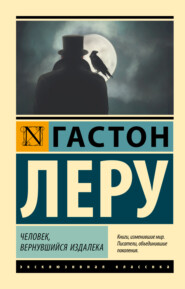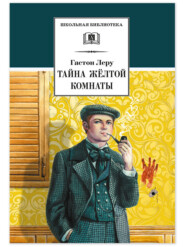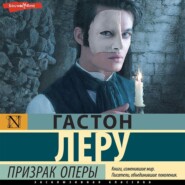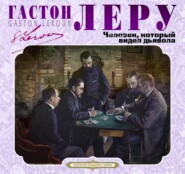По всем вопросам обращайтесь на: info@litportal.ru
(©) 2003-2024.
✖
The Bride of the Sun
Автор
Год написания книги
2018
Настройки чтения
Размер шрифта
Высота строк
Поля
The balcony on which they were was almost directly over the sea, for on this side the beach reached right up to the walls of the villa. After a time, the immense peace of the night completed Dick’s work, and the girl was perfectly quiet when she took off her bracelet.
“I think this is what has been worrying me,” she said. “I never before imagined that I saw a ghost....” And she threw the bracelet into the sea.
“A very good place for it,” agreed Dick. “A ring will do ever so much better. You do at all events know where that comes from.”
Before long the whole house was at rest, and the remainder of the night passed by quietly. But at seven o’clock, when people were beginning to stir again, an agonized scream from Maria-Teresa’s room sent the servants rushing to her aid. When they entered the room, they found their mistress sitting up in bed, staring at her wrist with horror-stricken eyes. The Golden Sun bracelet had returned during the night!
BOOK II—THE LIVING PAST
I
Dick was nearly as frightened as Maria-Teresa when he found what had happened. On the previous night he himself had seen her throw the bracelet into the sea, and yet it was there on her arm again when she woke up. What could it all mean? He could find nothing to say, and in spite of himself began to go over the terrible legend told by the two old ladies. It was preposterous, impossible, but he could not help believing in it now.
The Marquis and Uncle Francis, brought out by the noise, joined the others in the young girl’s room. Don Christobal’s sharp voice drove the servants from the room and brought out the whole story. Dick confessed his duplicity in the matter of the bracelet, and told how the jewel had been thrown away.
Maria-Teresa was shaking with fever, and her father took her in his arms. He was less worried by the strange story told him than by the state in which his daughter was. He had always seen her so calm, so sure of herself, that her terror shook all his own matter-of-fact convictions.
As to Uncle Francis, half-pleased with this striking story for his next book, he could only repeat:—“But it’s impossible, you know. Quite impossible.”
And then it was all explained in the most absurdly obvious way. Little Concha, back from marketing at Ancon, hurried to her mistress’ room and brought the solution of the mystery with her. Childishly naive, she explained that, on going out onto the beach in the morning, she had seen something glitter in the sand. She picked the object up, and found that it was a bracelet, which she recognized as one worn by her mistress on the previous day. Thinking that it had been lost from the balcony, and rushing to give Maria-Teresa a pleasant surprise, she had put it on her arm again without waking her. A huge burst of laughter from them all greeted the end of her simple story and Concha, terribly vexed, ran out of the room.
“It seems to me we are all getting a little mad,” said the Marquis.
“That infernal bracelet is enough to drive one to a lunatic asylum,” added Dick. “We must get rid of it at all costs.”
“No! If it ever came back a second time, I could not answer for my reason.” And Maria-Teresa joined nervously in the laughter. “What we all need,” she added, “is a change of air, of scenery.... We ought to go for a little trip in the mountains, Father, and show a little of our country to Mr. Montgomery and Dick.... Suppose we start to-night?… Back to Lima first, and not a word to Aunt Agnes or Irene, for it would make them both ill.... I shall go into Callao with Dick to give a few orders, and in the evening we take the boat.”
“To get to the mountains?”
“Of course, Father… to get to Pacasmayo.”
“Pacasmayo!” groaned the scientist “A horrible place. I know it. Our liner put in there for four hours. There’s nothing interesting in that part of the world, is there?”
“Nothing interesting! Why, do you know where one goes to from Pacasmayo? To Cajamarca, Mr. Montgomery!”
Uncle Francis straightened himself up:—“Cajamarca!… the Caxamarxa of the Incas!”
“The very place.”
“Cajamarca… the dream of my life, my dear!”
“There is nothing to prevent it becoming a reality.... And at the same time, Father, we can find out the name of the mysterious sender of this thing. It was sent from Cajamarca, you remember.”
“An excellent idea,” agreed Don Christobal. “We really must find a solution to that mystery as well.”
“And whoever the joker is, he will pay for it,” said Maria-Teresa, who was now toying with the bracelet. “He laughs best who laughs last!”
With which she drove them all out of her room and called for Concha, who, when she came to dress her mistress, received a masterly box on the ears to teach her to wake people up next time she brought back a lost bracelet. Concha, unused to such treatment, burst into tears, and Maria-Teresa, ashamed of herself, filled the little maid’s hands with chocolates to make her smile again. Do what she would, Maria-Teresa could not regain her calm. Every movement she made betrayed the inward storm, and she stamped whenever she thought of the cowardice she had shown....
Broadly speaking, all roads in Peru are little more than mule-paths. The only exception is in favor of the great paved highways built by the Incas, which link the wilds of Bolivia to the capital of Ecuador, and in comparison with which the finest monuments of the Gallo-Roman period are not so very remarkable, after all. It is for this reason that travelers wishing to reach the interior must take boat along the coast to one of the harbor towns which are the termini of the railways leading into the ever-delightful Sierra.
For Peru may be divided into three great parallel bands of country. First the Costa, or coast district, which rises gradually from the sea-board to an altitude of from 1,500 to 2,000 meters on the western slopes of the Andes. Then the Sierra, half mountain and half plateau, with altitudes varying between 2,000 and 4,000 meters. Finally the Montaña, with its forests, which sweeps down to the east of the Cordilleras, stretching toward the Amazon in long slopes which, from 2,000 meters, gradually drop to only 500. Landscape, climate and products are all different in these three zones. The Costa is rich; the Sierra has smiling valleys and a relatively warm climate; the Montaña is a veritable ocean of verdure.
Perhaps the most curious thing in this curious country is the variety of its landscape in a relatively small region, for to reach the Sierra one is obliged to scale some of the highest mountains in the world, and that in an equatorial country. In a few hours, one travels through districts where trees of all latitudes and plants of all climates grow and are cultivated side by side. Walnut-trees neighbor with waving palms; beetroot and sugar-cane grow in adjoining plantations; here, an orchard full of splendid apples; there a group of banana-trees spreading their broad leaves to the sun. In this amazing country, landowners can offer their guests drinks cooled with ice from the hills just above and made with sweet limes picked in the tropical gardens around the house.
Uncle Francis was in raptures, brimful of enthusiasm, and so schoolboyish in his delight that his companions could not help laughing. They teased the old gentleman constantly, and once the hiding of his fountain-pen at a moment when the taking of notes was urgent made him nearly frantic. All, in short, were in the best of spirits, and seemed to have completely forgotten the Golden Sun bracelet. This had been left in the care of Aunt Agnes and Irene, who immediately took it to the church of San Domingo and left it as an offering on the altar of the Lady Chapel.
There was an exciting landing for the travelers at Pacasmayo. They got ashore with the aid of an enormous raft, rising and falling with the waves alongside the liner. This raft they reached by means of a cradle swung out on a small crane. All one had to do was to wait until the raft rose to within jumping distance of the cradle.
Maria-Teresa led the way, and landed very neatly on her feet; the Marquis, used to such gymnastics, followed suit; and Dick reached the raft with his hands still in his pockets. Uncle Francis, thinking hard of something else, arranged his own descent so badly that raft and cradle met with a crash which nearly jerked him into the sea. The shock was forgotten in a wave of enthusiasm over the novelty of it all, and he even retained his equanimity when the jerk of the grounding raft sent him rolling onto the wet sand of the beach.
It was not until the following morning that the party left Pacasmayo, without any untoward incident to disturb the peace of a journey commenced under the most favorable auspices.
Dick was the only one to think twice of the advent of a coppery-colored gentleman who seemed to have attached himself to their party. Had he not worn European dress, the stranger might well have passed for a typical Trujillo—that Indian race of which Huascar was certainly the finest representative. On the other hand, he wore his lounge suit with ease, and during the voyage evidenced his civilized upbringing by rendering to Maria-Teresa several of those little services which a man may allow himself to do when traveling, even to a woman he does not know. The stranger had embarked at Callao, had landed by the same raft as they, had stopped at the same inn in Pacasmayo, and, the following morning, took the same train for Cajamarca.
They were so engrossed with the landscape of the lower ranges of the Andes that they did not at first notice his presence in their own carriage. He drew their notice to himself in such an unexpected manner that all, without knowing exactly why, experienced a strange feeling of discomfort.
There had been a chorus of exclamations and interjections over the variety of the panorama before them, and they had just entered the wildest gorge imaginable, when the stranger said in a grave voice:
“Do you see that camp, señores? That is where Pizarro’s first messengers reached the last King of the Incas.”
All turned at the words. The stranger, standing at the back of the observation platform, seemed to see nobody; with arms crossed, he stared out toward the rocky fastnesses at the foot of which the world’s greatest adventurer rested for a moment before starting on the conquest of an Empire.
“One of my ancestors was there!” exclaimed the Marquis involuntarily.
“We know it! We know it!” said the stranger, without turning, and in such a voice that the others exchanged astonished glances. His statuesque immobility also had its effect on them. Then after a moment’s silence, he continued:
“No, we have not forgotten that a Christobal de la Torre was with Pizarro. We know the whole story, sir. When Pizarro left the Spanish colony of Panama, vaguely guessing that before him was an empire even greater than the one which Cortes had just given to Charles V.; when, after a thousand dangers, he saw himself on the point of being deserted by all, he drew his sword and with the point drew a line in the sand, from east to west. Then, turning toward the south, he said: ‘Comrades, on this side are danger, privation, hunger, nakedness, ruin and death; behind us, comfort and mediocrity. But to the south are also Peru and its riches, glory and immortality. Let each one decide for himself which is best for a hidalgo of Castille!’ And with those words, he crossed the line. He was followed by Ruiz, his brave pilot, then by Pedro de Candia, a knight born, as his name shows, in one of the Greek islands. Eleven others crossed that line, ready to follow their chief to the world’s end. And among those eleven was Juan-Christobal de la Torre. We know it! Señor, we know it!”
“And, pray, who are you, señor?” demanded the Marquis brutally, exasperated by the stranger’s manner, though he had in truth remained studiously polite.
As if not hearing, as if intent on doing homage to the exploits of those dead Conquistadors, the stranger continued:
“Is there not, señores, is there not, señorita, something gigantic in this spectacle? This little handful of men confidently starting on an expedition as wild as the wildest deeds of their knights-errant, a handful of men, señores, without clothes or food, almost without arms, left by their comrades on a deserted mountain-side to start on the conquest of one of the most powerful empires ever known.
“And among those men there was a Christobal de la Torre.... señor Don Marques, it is a glorious descent to claim.... And allow me to present myself: your servant Huayna Capac Buntu, head clerk of the Franco-Belgian Bank of Lima.... But we may fittingly travel in company, señor, for I am of royal blood. Huayna Capac, King of the Incas, who succeeded his father at the age of sixteen, married first Pillan Huaco, by whom he had no children. He then took two other wives, Bava-Bello and his cousin Mama-Buntu. I am the descendant of that Huayna Capac and that Mama-Buntu!”
“Now on leave from your bank?” queried the Marquis, almost insolently.
There was a flash in the Indian’s eyes as he answered somberly:
“Yes, on leave, for the Interaymi.”
Dick started at these words, already repeated so often in connection with the Golden Sun bracelet. He glanced at Maria-Teresa, who was evidently ill at ease at the turn taken by the conversation between her father and the stranger. She now remembered him quite clearly as a clerk with whom she had had dealings over a consignment of phosphates for Antwerp. An insignificant little body, she had thought—not at all the haughty Indian of to-day, discarding the disguise of his European clothes and proclaiming himself for what he was. Knowing by experience how susceptible Trujillos are, and fearing that a careless word from her father might provoke a storm, she intervened:
“The Interaymi! Of course, your great festival. Is it to be particularly celebrated at Cajamarca?”
“This year, señorita, it will be particularly celebrated throughout the Andes.”







